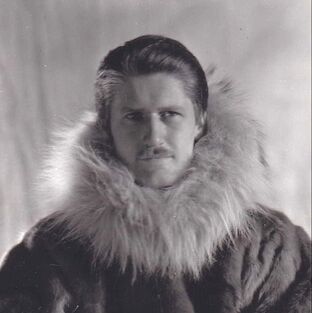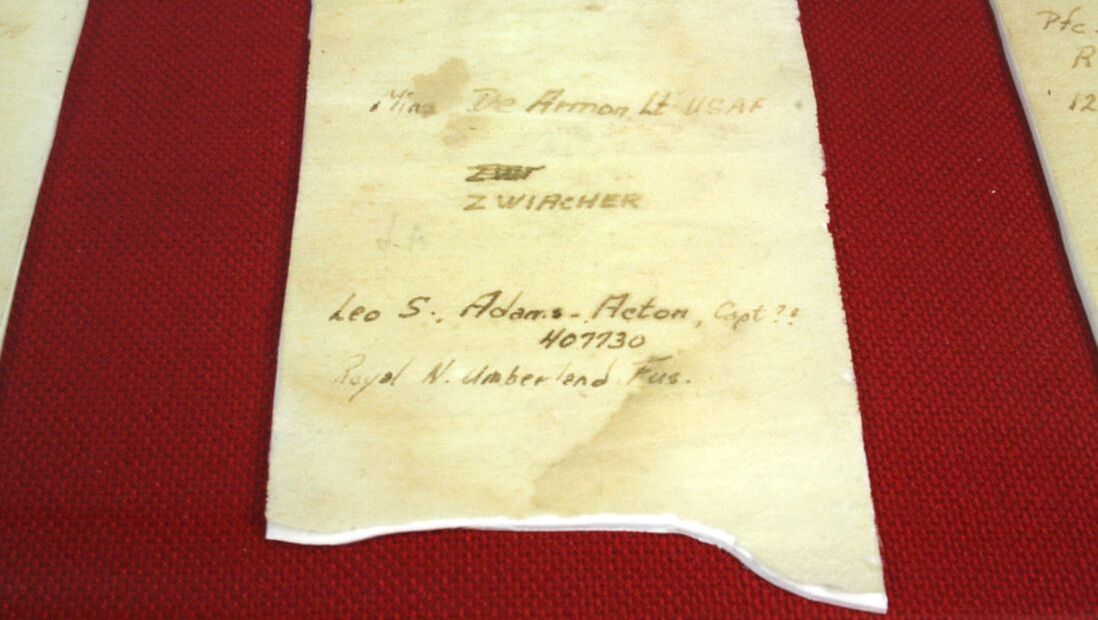 Ferranto in Antarctica
Ferranto in Antarctica By Special Assistant Monica Cronin
As an artifact, it is unassuming. Twenty-five scraps of paper, yellowed by age and exposure, fixed on a red background. A casual glance could never reveal that these scraps tell an extraordinary story. It is a story that ranges from Antarctica to Guadalcanal to the remote northern wilds of the Korean peninsula. It is a story about radios, wars, and the United Nations. It is a story of the grit and resourcefulness of a solitary, wounded hostage. In short, it is the story of Marine Felix L. Ferranto.
Early Years
Ferranto enlisted in the Marine Corps in August 1933 and trained as a radio operator. In the late 1930s he served a tour of duty at the American Legation in Peiping, China. While there, he was the tenant of a local woman who taught him a little of her language. Although he could not have known it at the time, this knowledge would one day save his life.
In 1939, Ferranto volunteered for the Antarctic Expedition under Admiral Richard Byrd. He was one of four men chosen from hundreds across the U.S. to crew the new Antarctic Snow Cruiser in this venture, for which he would be awarded a Congressional Gold Medal.[i] As the designated radio operator for the Cruiser on an expedition through extreme weather and terrain far from any kind of civilization, Ferranto honed his skills at on-the-fly maintenance and repair. This would come in handy when he returned to his Marine unit and was sent into battle at the advent of the Second World War.
As an artifact, it is unassuming. Twenty-five scraps of paper, yellowed by age and exposure, fixed on a red background. A casual glance could never reveal that these scraps tell an extraordinary story. It is a story that ranges from Antarctica to Guadalcanal to the remote northern wilds of the Korean peninsula. It is a story about radios, wars, and the United Nations. It is a story of the grit and resourcefulness of a solitary, wounded hostage. In short, it is the story of Marine Felix L. Ferranto.
Early Years
Ferranto enlisted in the Marine Corps in August 1933 and trained as a radio operator. In the late 1930s he served a tour of duty at the American Legation in Peiping, China. While there, he was the tenant of a local woman who taught him a little of her language. Although he could not have known it at the time, this knowledge would one day save his life.
In 1939, Ferranto volunteered for the Antarctic Expedition under Admiral Richard Byrd. He was one of four men chosen from hundreds across the U.S. to crew the new Antarctic Snow Cruiser in this venture, for which he would be awarded a Congressional Gold Medal.[i] As the designated radio operator for the Cruiser on an expedition through extreme weather and terrain far from any kind of civilization, Ferranto honed his skills at on-the-fly maintenance and repair. This would come in handy when he returned to his Marine unit and was sent into battle at the advent of the Second World War.


 RSS Feed
RSS Feed







